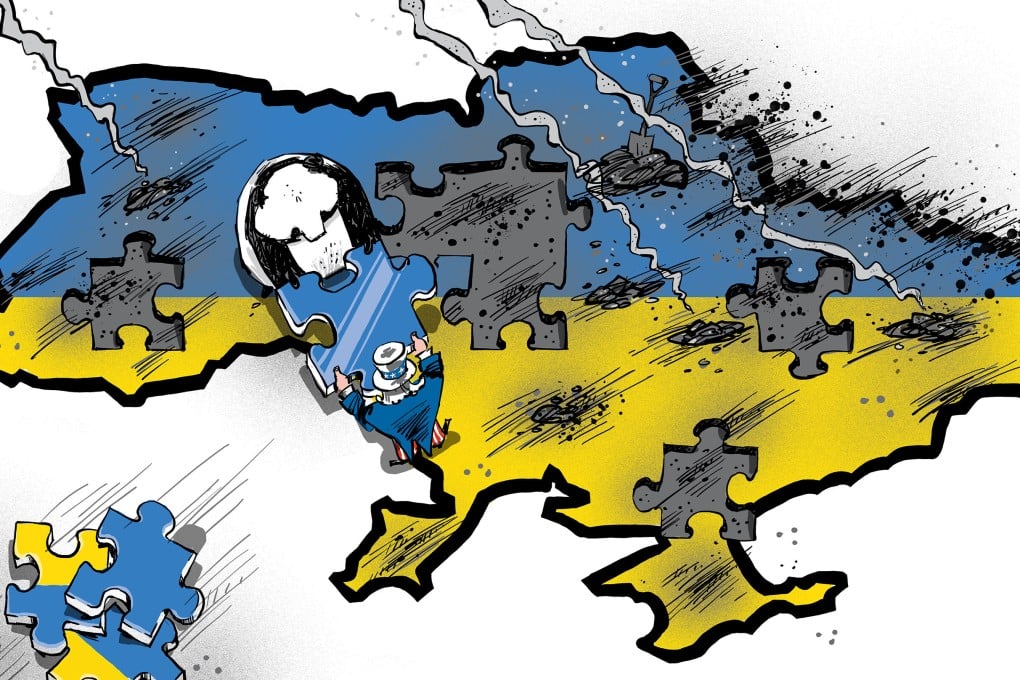Opinion | Ukraine’s post-war economic recovery could provide the setting for US-China cooperation
- With Russia isolated, China is left without an ally to challenge the US-led world order. However, Washington is in no position to provoke Beijing, either
- What is needed is a return to cooperation and the task of rebuilding Ukraine once the war ends may provide a starting point

In 1904, France watched helplessly as its most important strategic ally, Russia, suffered a crushing defeat at the hands of Japan, crippling the alliance they had created in 1894 to balance Germany’s growing dominance in Europe. With Russia’s standing as a great power in ruins, France was left isolated, enabling Berlin to act with increasing impunity. The march to World War I had commenced.
Today, it is China that is witnessing years of strategic planning go up in smoke. Russia’s military assault on Ukraine, anticipated to be a simple, three-day operation, has instead turned into a devastating stalemate resulting in massive casualties that will leave the Russian army in tatters for years to come.
Geopolitically speaking, China faces an even worse crisis than France a century earlier. The rise of Germany in the late 19th and early 20th centuries not only prompted the Franco-Russian alliance, but it also convinced Britain to resolve its centuries-old rivalry with France and Russia and create the coalition that would defeat Imperial Germany in WWI.
China now lacks a similar peer ally. Instead, Beijing has seen the Western alliance unite in opposition to Russia’s invasion, reinvigorating the historic bloc that won the Cold War and dominated the post-Cold-War era.
